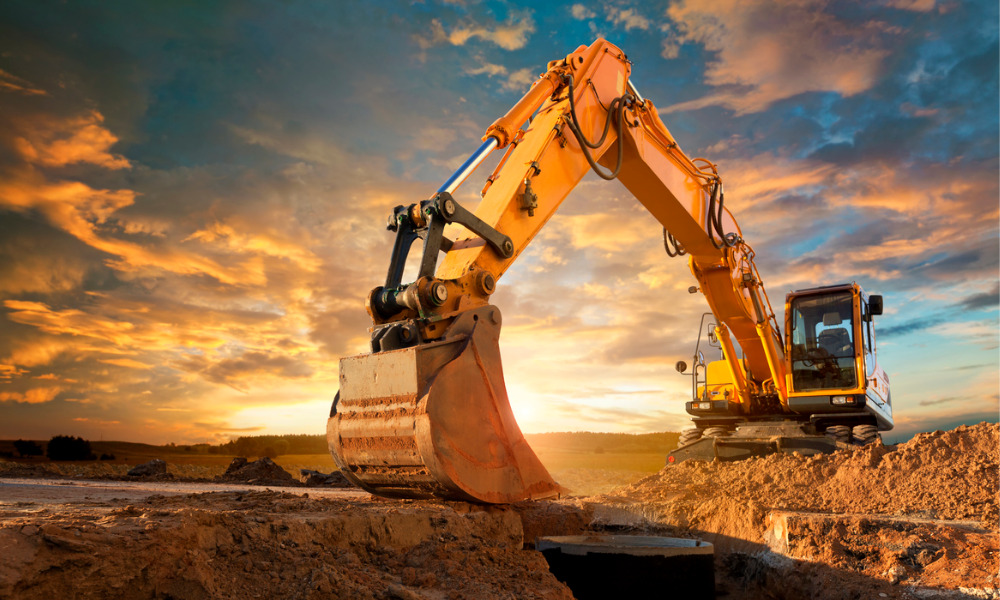Renting Out Vs. Buying Construction Tools: Making the Right Selection for Your Project
When getting started on a building and construction task, one of the important decisions that predict managers and stakeholders encounter is whether to lease or buy building devices. The choice hinges on numerous aspects such as price factors to consider, project duration, tools upkeep, risk, scalability, and versatility management.
Expense Factors To Consider
When assessing the economic facet of getting versus leasing building devices, the lasting expenses and upfront expenses have to be carefully considered. Leasing equipment typically needs lower preliminary settlements contrasted to acquiring, making it an eye-catching alternative for temporary projects or contractors with spending plan restrictions. Renting out removes the requirement for huge capital outlays and reduces the financial risk related to equipment ownership, such as maintenance and devaluation expenses. Nevertheless, in the long run, constantly renting equipment can accumulate higher prices than acquiring, particularly for extended projects.
On the various other hand, buying building equipment entails higher ahead of time costs yet can result in long-term savings, specifically for long-lasting tasks or regular customers. Owning devices provides versatility, ease, and the potential for resale worth once the task is completed. Furthermore, possessing equipment enables customization and knowledge with details machinery, potentially raising performance and performance on-site. Inevitably, the choice in between leasing and purchasing building devices pivots on the job's duration, regularity of use, budget plan considerations, and long-term monetary objectives.
Job Duration

Alternatively, for long-lasting tasks or ongoing construction job, purchasing tools might be the much more affordable option. Purchasing equipment can cause cost savings over time, particularly if the tools will certainly be often utilized. Additionally, possessing equipment supplies a sense of control over its schedule and enables for modification to fit particular project needs.

Tools Maintenance
Provided the vital role project period plays in determining the most cost-efficient method in between buying and renting building and construction devices, the emphasis now moves towards analyzing the important element of tools upkeep. On the other hand, possessing devices needs a positive technique to maintenance to protect against break downs, guarantee safety and security, and prolong the devices's life-span. Eventually, a properly maintained construction devices fleet, whether leased or possessed, is important for the effective and successful completion of building and construction jobs.
Versatility and Scalability
In the world of building and construction devices management, the element of flexibility and scalability holds substantial relevance for project effectiveness and source utilization. Choosing to rent out building equipment supplies a high level of versatility as it enables the fast modification of tools kinds and quantities based on the evolving needs of a task. Renting out enables contractors to access a wide range of specific devices that might be required for details tasks without the long-term commitment of possession. This flexibility is especially useful for projects with varying demands or unclear durations (construction equipment rentals).
Furthermore, scalability, an additional vital factor, is inherently connected to adaptability. Renting construction tools provides the advantage of quickly scaling procedures up or down as project needs vary. Contractors can quickly trade or add devices to match the task's altering demands without the constraints of having properties that may come to be underutilized or outdated. This ability to range resources straight from the source effectively can result in cost financial savings and enhanced task timelines, making renting a positive option for projects requiring flexibility and responsive resource allowance.
Threat Monitoring
Efficient risk administration in building and construction devices operations is extremely important to making certain project success and mitigating prospective monetary losses. Building jobs inherently entail different risks, such as tools failures, accidents, and job hold-ups, which can considerably affect the job timeline and spending plan. By thoroughly considering the risks related to owning or renting building tools, task managers can make enlightened choices to decrease these potential threats.
Renting out building devices can use a level of risk mitigation by transferring the duty of maintenance and fixings to the rental types of forklift firm. This can lower the monetary worry on the project proprietor in case of unanticipated devices failings (heavy equipment rental). In addition, renting supplies the versatility to gain access to specific devices for details job phases, reducing the threat of having underutilized equipment
On the other hand, having building and construction tools provides a sense of control over its usage and maintenance. Nevertheless, this likewise indicates bearing the complete obligation for fixings, upkeep costs, and depreciation, raising the financial threats connected with tools possession. Cautious danger analysis and factor to consider of elements such as job period, equipment utilization, and maintenance requirements are crucial in establishing the most appropriate alternative for effective risk administration in building jobs.
Final Thought
Finally, when determining between purchasing and renting out building and construction devices, it is essential to take into consideration cost, task duration, tools upkeep, versatility, scalability, and risk administration. Each factor plays a crucial duty in figuring out the most ideal choice for the job handy. By very carefully reviewing these facets, job supervisors can make an educated choice that aligns with their budget plan, timeline, and total task goals.

Comments on “Mini Excavator Rental: Compact and Powerful Machinery”